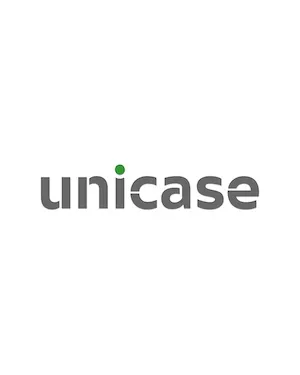- within Tax, Media, Telecoms, IT, Entertainment, Litigation and Mediation & Arbitration topic(s)
- with readers working within the Healthcare industries
Unicase Law Firm below presents the most essential legal news and amendments to Kazakhstan laws in 2022 and 2021.
2022
On 11 January 2022, President of Kazakhstan Kassym-Jomart Tokayev delivered a speech at a meeting of the Majilis of Parliament. During the meeting, the president outlined solutions to pressing political and socio-economic issues.
We have prepared certain key conclusions from the president's speech below. The president has:
- appointed Alikhan Smailov as the new Prime Minister of Kazakhstan;
- declared the 5-year moratorium on salary increases for ministers, akims and MPs;
- instructed the reduction of the recycling fee and the termination of the Operator ROP LLC;
- declared the end of the counter-terrorist operation and the withdrawal of the CSTO contingent within no more than 10 days;
- recognised the failure of LRT project in Nur-Sultan. It is planned to invite national and foreign experts to identify possible options for renewal of this project;
- set the target interest rate inflation corridor of 3-4% by 2025. Therefore, the National Bank and the Agency for Financial Market Regulation and Development were instructed to ensure stability of the currency market until full restoration of confidence in the tenge by internal and external market participants;
- declared the restructuring and radical reorganisation of the security and law enforcement structures, the armed forces and the national security bodies;
- instructed the establishment of the Kazakstan Khalkyna Public Foundation. The foundation will focus on issues in the areas of health, education and social support;
- instructed to conduct the revision of Samruk-Kazyna and all structural subdivisions of the holding company. At the same time, he noted regular complaints about the lack of transparency in the holding company's activities;
- declared the opening of at least five branches of prestigious international universities by 2025.
Oil and Gas
The oil and gas industry is one of the most essential pillars of Kazakhstan's economy. Therefore, certain specialists believe that the new government of Kazakhstan should take into account a number of the proposals put forward. It is proposed to:
- sell oil on the domestic market through commodity exchanges. It is assumed that this will lead to a more transparent sales process between oil producers and refineries.
- bring domestic refineries into the petrol, fuel and lubricant wholesale market. It is assumed that this will increase refineries' revenues and reduce refineries' debts.
- transfer the regulation of the LPG market to the national company QazaqGas. It is assumed that such a move would structurise the market and also allow gas to be sold at a low price on the domestic market and exported at a high price.
- introduce an instrument of direct government financial interest in large oil and gas projects. It is assumed that this will increase government revenue. For example, in Norway, the government oil company does not intervene in the operations of the plants, but redirects the revenues to the Norwegian Fund.
- cancel the priority right to subsoil use of KazMunaiGas. Since the company has shown for 20 years that it cannot launch a project on its own (commercial production). It is proposed to attract new investors to launch projects (with the condition of delivery to the domestic market). It is assumed that this will attract the attention of Western investors.
2021
Tax Code
According to Law No. 77-VII dated 2 December 2021 (Law No. 77-VII), the republican budget for 2022-2024 was approved. In accordance with this Law, the following indicators are established from 1 January 2022:
- minimum wage - KZT 60,000;
- minimum amount of state basic pension payment - KZT 19,450;
- minimum pension - KZT 46,302;
- monthly calculation index (MCI) - KZT 3,063;
- subsistence minimum - KZT 36,018.
According to Law No. 53-VII dated 24 June 2021 (Law No. 53), the following amendments were made to the Tax Code, which will enter into force from 1 January 2021, 1 July 2021, 1 January 2022, 1 January 2023 and 1 January 2025:
- Deferral of individual income tax at source and social tax on liabilities falling due between 1 April 2021 and 1 July 2021 is granted to tax agents who apply the special retail tax regime and to individuals engaged in private practice not later than 1 July 2021.
- From 1 July 2021, there is a minimum limit on the amount of tax debts (6 MCI) below which the tax authorities may not suspend debit transactions on the bank accounts of a taxpayer classified as high or medium risk according to the risk management system (RMS). Also, from 2022 a provision will be introduced allowing banks to open an account immediately after a taxpayer has paid off debts.
- From 1 July 2021, the Tax Code has been amended to establish that all medical expenses incurred by an employer, including reimbursement of expenses incurred by employees in connection with restrictive measures (quarantine, pandemic), are not considered personal income and are not subject to taxation.
- From 1 July 2021, the right to an additional VAT credit applies to legal entities that commission buildings, structures, machinery and equipment for the first time in Kazakhstan for manufacturing activities (excluding metallurgy).
- Starting from 1 January 2022, the following documents will be supporting documents for the deduction of CIT on transactions in an amount exceeding 1,000 MCI along with waybills and acts of acceptance of work performed:
-
- invoice; or
- cash register receipt;
which indicates the identification number of the purchaser, recipient of goods, works.
- The new special tax regime using a special mobile application will only be applicable to individual entrepreneurs who use the simplified tax declaration, as tax obligations can be fulfilled via a smartphone. The introduction of the new regime will simplify the registration, termination of activities and fulfilment of tax obligations of the taxpayer.
- Mining is a way of mining cryptocurrencies. A digital mining fee will be charged for the amount of electricity consumed in digital mining. The current amount of the fee will be payable by payers on a quarterly basis. The rate of charge is set at KZT 1 per kilowatt-hour of electricity consumed in digital mining.
Please click here to read the full article.
The content of this article is intended to provide a general guide to the subject matter. Specialist advice should be sought about your specific circumstances.


